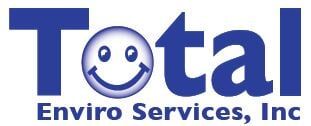Imagine settling into your dream home in Central Florida, only to face unexpected septic system failures. Not exactly the sunny start you hoped for, right? That’s why Choosing the Right Septic Tank for New Homes in Central Florida is a crucial step not to be overlooked.
This region’s unique environmental factors and local regulations dictate specific needs. From sandy soils to proximity to water bodies, each element influences your septic system choice profoundly.
Whether you’re building from scratch or upgrading an existing property, understanding these nuances can save you time, money, and headaches. Let’s explore how selecting the perfect septic tank can make all the difference.
Table Of Contents:
- Choosing the Right Septic Tank for Your Central Florida Home
- Installation and Maintenance of Septic Systems in Florida
- Navigating Septic Tank Sizes and Regulations in Florida
- The Role of Soil Type in Septic System Functionality
- Modern Septic Tank Systems for Florida Residents
- The Impact of Environmental Protection Regulations on Septic Systems in Florida
- Conclusion
Choose Your Septic System Today and Get it Installed With Total Septic
Ensure you choose the right septic system for you with Total Septic. From professional installations to emergency services, our experts are here to help. Don’t let small issues become major expenses.
Call (407) 841-0400 or Click to Schedule Your Inspection Today
Choosing the Right Septic Tank for Your Central Florida Home
If you’re building a new home in Central Florida, one of the important decisions you’ll make is choosing the right septic tank. The type of septic tank you choose can have a big impact on how well it functions and how long it lasts. In this article, we’ll explore the critical factors in selecting an appropriate septic tank for homes in Central Florida, including types and materials.
Understanding Local Regulations and Environmental Conditions
Before you start shopping for a septic tank, it’s important to understand the local regulations and environmental conditions in Central Florida. The Florida Department of Health has specific requirements for septic systems, including the size of the tank and the type of soil on your property. The climate in Central Florida can also impact your septic system. With heavy rainfall and high water tables, it’s important to choose a septic tank that can handle these conditions without failing or causing environmental damage.
Comparing Septic Tank Materials
When it comes to septic tanks, there are three main materials to choose from: concrete, plastic, and fiberglass. Each has its own advantages and disadvantages, so it’s important to weigh your options carefully. Concrete septic tanks are the most common type in Central Florida. They’re durable and can last for decades with proper maintenance. However, they’re also heavy and can be difficult to install in some areas. Plastic septic tanks are lightweight and easy to install, but they’re not as durable as concrete tanks. They can also be more susceptible to damage from tree roots or shifting soil. Fiberglass septic tanks are a newer option that’s gaining popularity in Central Florida. They’re lightweight, durable, and resistant to corrosion. However, they can be more expensive than concrete or plastic tanks.
Installation and Maintenance of Septic Systems in Florida
Once you’ve chosen the right septic tank for your home, the next step is to have it installed properly. Septic system installation is not a DIY project – it requires specialized equipment and expertise to ensure that the system is installed correctly and in compliance with local regulations.
Expert Installation Services
That’s where Total Enviro Services come in. As a leading provider of septic services in Central Florida, we have the knowledge and experience to ensure that your septic system is installed correctly the first time. Our team of certified technicians uses state-of-the-art equipment and techniques to install septic systems of all types and sizes. We also work closely with local health departments to ensure that all necessary permits and inspections are obtained.
Maintaining Your Septic System
Once your septic system is installed, it’s important to maintain it properly to ensure that it continues to function efficiently and effectively. Regular maintenance can also help extend the life of your septic tank and prevent costly repairs down the road. Some tips for maintaining your septic system include:
- Having your tank pumped every 3-5 years, depending on the size of your household and the amount of wastewater generated
- Avoiding the use of harsh chemicals or excessive amounts of water, which can disrupt the delicate balance of bacteria in your septic tank
- Keeping trees and shrubs away from your drain field to prevent root damage
- Inspecting your system regularly for signs of leaks or other problems
Navigating Septic Tank Sizes and Regulations in Florida
Another important factor to consider when choosing a septic tank is the size. A tank that’s too small for your household’s needs can lead to frequent pumping and even system failure, while a tank that’s too large can be a waste of money and space.
Understanding Tank Size Requirements
In Florida, the size of your septic tank is based on the number of bedrooms in your home and the estimated amount of wastewater generated per day. The Florida Department of Health has specific requirements for septic tank sizes based on these factors. For example, a three-bedroom home with a standard water usage of 200 gallons per day would require a septic tank with a minimum capacity of 900 gallons. However, if the home has a higher water usage or additional fixtures like a whirlpool tub or multi-head shower, a larger tank may be necessary. It’s important to work with a qualified septic professional to determine the appropriate size for your septic tank based on your household’s specific needs and local regulations.
The Role of Soil Type in Septic System Functionality
Another critical factor to consider when choosing a septic system for your Central Florida home is the type of soil on your property. The soil plays a key role in the functionality and efficiency of your septic system, particularly the drain field or leach field. Different types of soil have different percolation rates, which refers to how quickly water moves through the soil. Sandy soils have a high percolation rate, while clay soils have a low percolation rate. The ideal soil for a septic system has a moderate percolation rate that allows wastewater to filter through the soil without moving too quickly or too slowly.
Modern Septic Tank Systems for Florida Residents
While traditional septic systems have been used for decades in Central Florida, there are now more modern options available that offer improved efficiency and environmental benefits. These advanced septic systems use innovative technologies to treat wastewater more effectively and reduce the impact on the environment. One example of a modern septic system is an aerobic treatment unit (ATU). ATUs use oxygen to break down waste more efficiently than traditional septic tanks, resulting in cleaner wastewater that’s safer for the environment. They also require less space for the drain field, making them a good option for smaller properties. Another modern option is a performance-based septic system, which uses advanced filtration and treatment methods to produce high-quality effluent that can be safely discharged into the environment. These systems are designed to meet strict environmental standards and are often required in areas with sensitive water resources.
The Impact of Environmental Protection Regulations on Septic Systems in Florida
As a Florida resident, it’s important to be aware of the environmental protection regulations that impact septic systems in our state. The Florida Department of Environmental Protection (DEP) has strict requirements for the installation and maintenance of septic systems, particularly those located near water bodies like lakes, rivers, and wetlands. In some cases, properties located near these sensitive areas may require advanced treatment systems or alternative septic solutions to minimize the impact on the environment. This can include the use of performance-based septic systems, as mentioned earlier, or the installation of additional filtration or disinfection components. It’s important to work with a qualified septic professional who understands these regulations and can help you navigate the permitting and installation process. They can also provide guidance on the best septic solution for your property based on its location and environmental factors.
When building in Central Florida, picking the right septic tank is crucial. Start by knowing local rules and your soil type. Concrete, plastic, or fiberglass? Each has pros and cons. Get a pro for installation and keep up with maintenance to avoid headaches later.
Conclusion
Choosing the right septic tank for new homes in Central Florida isn’t just a box to check off during your home building journey—it’s a cornerstone of sustainable homeownership. You’ve learned that this choice affects everything from environmental compliance to long-term financial savings.
In Central Florida, where elements like sandy soil and proximity to water bodies play huge roles, getting savvy with local regulations and understanding how different materials—concrete, plastic, fiberglass—respond to these conditions is key. Whether it’s preventing future headaches or ensuring efficiency, the importance of selecting the perfect septic system tailored for your locale cannot be overstated.
We explored modern advancements that make systems more efficient and environment-friendly while diving into why professional installation is non-negotiable. Remember: regular maintenance keeps those unforeseen disasters at bay.
So as you step forward in laying down roots in sunny Central Florida, let clarity guide your decision on choosing a septic tank. This isn’t just about meeting requirements; it’s about crafting peace of mind deep beneath the ground—a foundation as solid as your new home itself!
Choose Your Septic System Today and Get it Installed With Total Septic
Ensure you choose the right septic system for you with Total Septic. From professional installations to emergency services, our experts are here to help. Don’t let small issues become major expenses.
Call (407) 841-0400 or Click to Schedule Your Inspection Today

